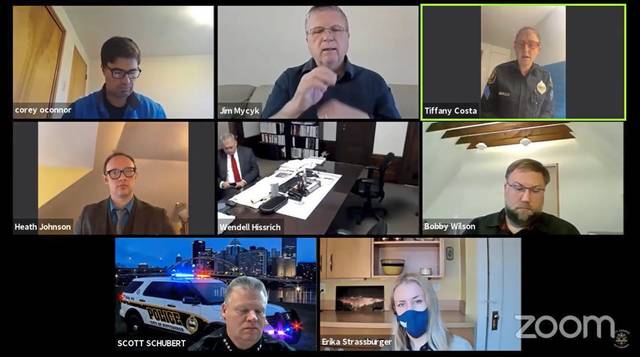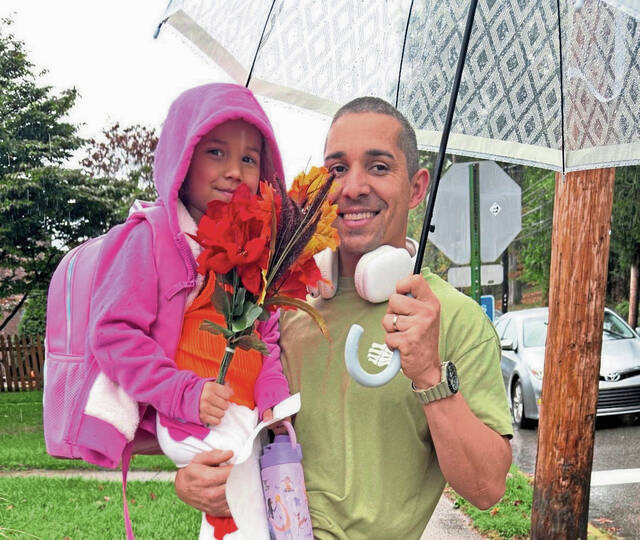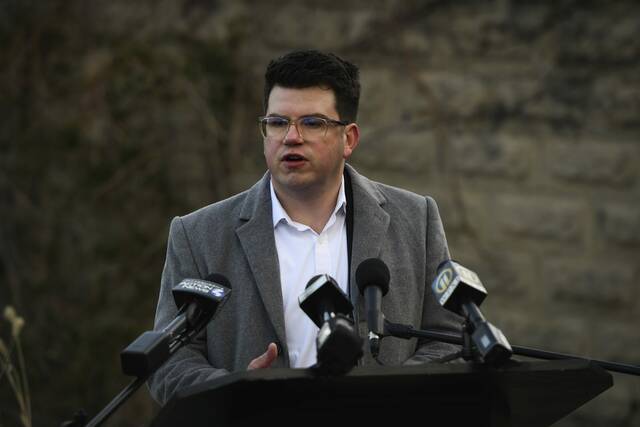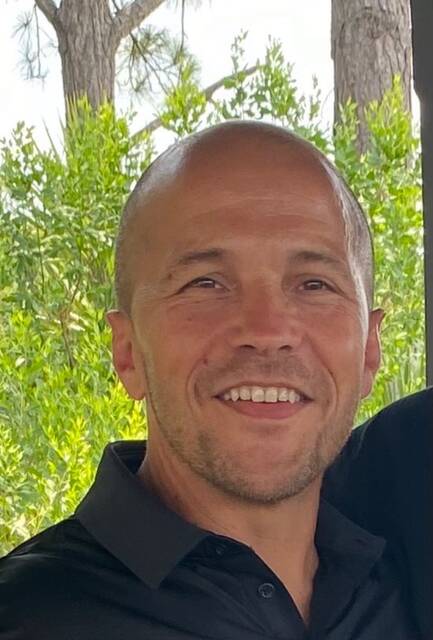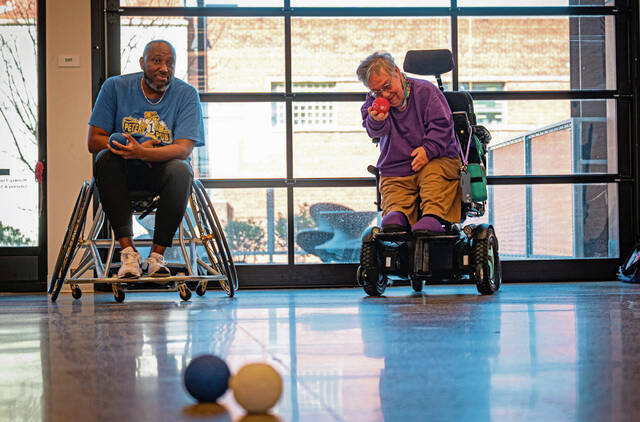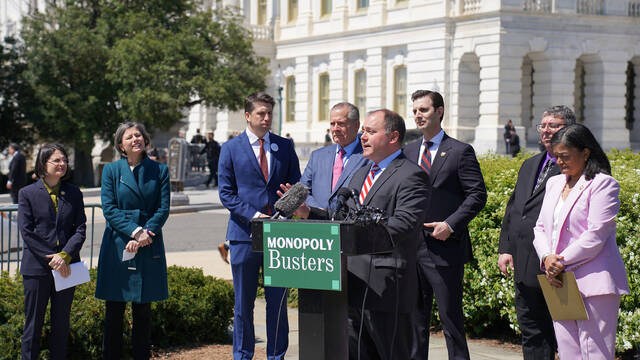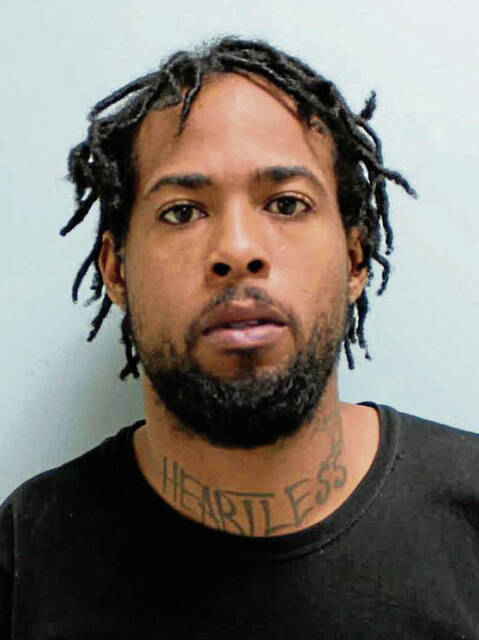Pittsburgh police Chief Scott Schubert has walked a beat in about 30 of the city’s 90 neighborhoods in a quest to hear from the people about how they feel he’s doing the job.
When he gets to all 90, he plans to start over because he wants to know what people need, he told City Council members Tuesday.
“I’m committed,” Schubert said. “We’re always evolving, always striving to be better. Are we perfect?”
No, Schubert said.
But police and public safety officials made the case to council members they have or are working to implement a litany of recommendations made by the Community Task Force on Police Reform convened in June by Mayor Bill Peduto.
The two-hour meeting gave police brass including Schubert, Public Safety Director Wendell Hissrich and police command staff an opportunity to explain to council what they’ve done and what they’re planning to do since the task force issued its report in October.
In November, task force members called on council to shepherd implementation of the recommendations the report. On Tuesday, Councilman Corey O’Connor, who chairs the public safety committee, convened the virtual session.
Working on transparency
Pittsburgh police policies are online and the department works with the Western Pennsylvania Regional Data Center to make information about the department and crime statistics available to the public in an effort to improve transparency, those who spoke during the meeting said.
The @PghPolice Crime Analysis Unit compiled a list of publicly available Public Safety datasets, dashboards, and reports.
— Pgh Public Safety (@PghPublicSafety) December 22, 2020
Visit the Pittsburgh Public Safety website to read more ➡️ https://t.co/woqQu5RFk1 pic.twitter.com/vUzgmOwNaf
They’re also working to make it easier for people to find the information they want, but it’s a collaborative process, said Heath Johnson, the department’s crime analysis coordinator.
“Our hope is to have all of that stuff accessible to anyone who seeks it out,” Johnson said.
The “Eight Can’t Wait” recommendations, which include bans on chokeholds and restrictions on use of force, have been or are in the process of being implemented in Pittsburgh, police officials said.
Diversity is a dilemma
The department is also working to be more diverse and reflect the racial makeup of the city, but figuring out how to do that is a challenge, Schubert said.
About 300 officers are eligible to retire this year and about 60 of those officers are Black. When those officers retire, the department will be less diverse, he said.
Between the late 1970s and early 1990s the department was working under a consent decree that required the department to hire one Black man and woman for every white man and woman it hired, Schubert said.
The department is looking to recruit more Blacks and minorities. There won’t be a new class of recruits in 2021, Schubert said, because of budget constraints.
“It’s something I think about daily,” Schubert said.
The department’s goals are to have officers who develop relationships with the community, its homeless and those who need human services. But those efforts take time and money, Schubert and other police officials said.
“This work is slow because you have to have your heart in the right place,” said Anna Kudrav, assistant chief of police operations. “You have to build that trust up.”
Police costs go up every year, Schubert said, and investing in body cameras and equipment requires money.
“We believe it’s an investment that’s worthwhile,” he said.
Cuts aren’t needed
The department has about 900 officers. Some residents have called on council to cut the department’s $110 million budget by 50%.
When the department had about 800 officers, and the city was facing a financial crisis a decade ago, many people asked for more police, Hissrich said.
Staffing is now at an adequate level, he said, and people are calling for cuts.
The department is working with the Allegheny County Human Services Department and other agencies to develop a way to have other professionals respond to calls that police now take on. Again, it’s a slow process, the police leaders said.
For example, Schubert said, on Monday there was a 911 call about a person on Brownsville Road who was “acting strange” and wasn’t wearing a coat. Police responded, because that’s what they do.
“People call because they can call 911 for anything,” Schubert said.
Councilman Ricky Burgess has pushed for police reform in three terms on council and decades prior to that as an activist pastor in Homewood.
“For me, this is not theoretical,” Burgess said. “Now, I’m glad this is a cause people are interested in.”
He will advocate for police reforms, but he said he also wants police to respond to violent crimes in the minority neighborhoods where they mainly happen.
“I’ve seen it up close and personal,” Burgess said. “This is not something we can do without partnership. Let’s work long-term together. We have to make tough decisions.”


